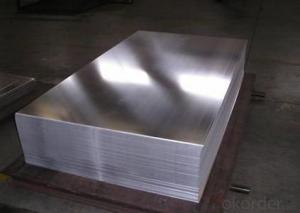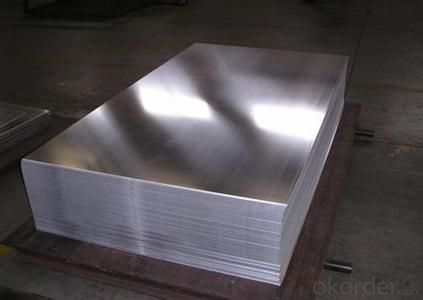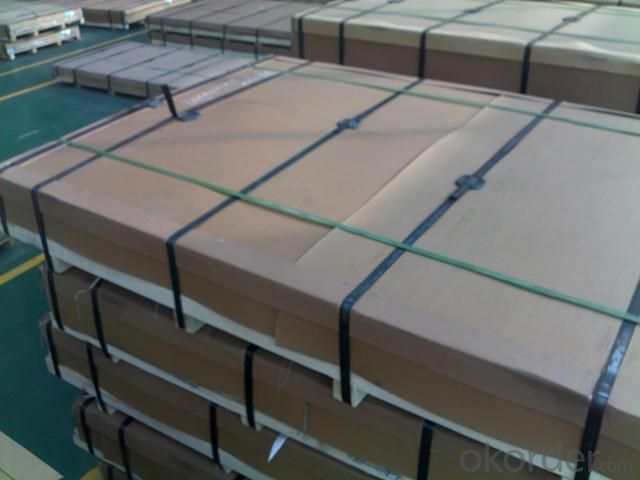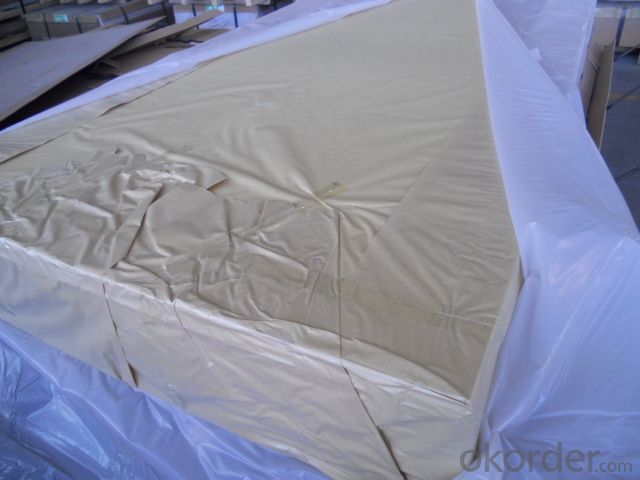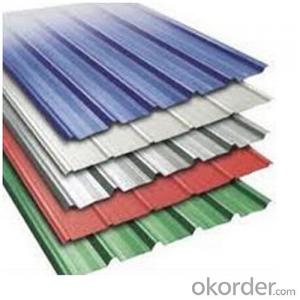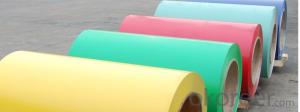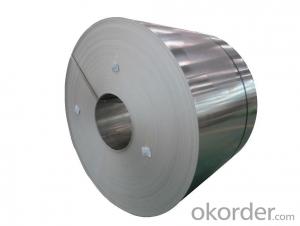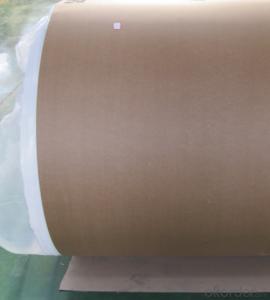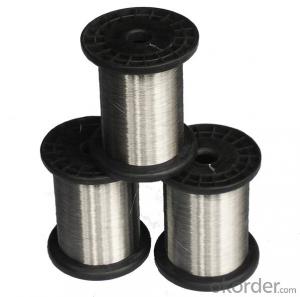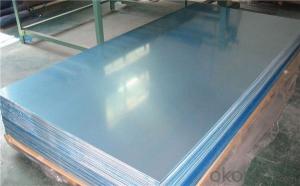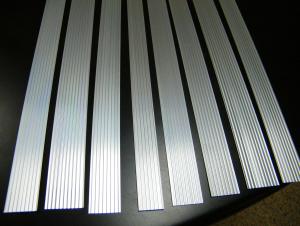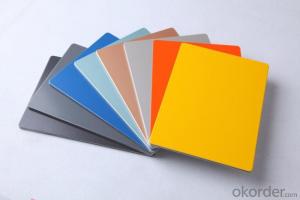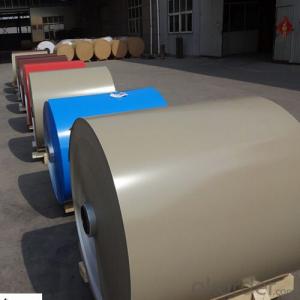Aluminum Camper Siding 12 Sheets for Normal Construction
- Loading Port:
- Shanghai
- Payment Terms:
- TT or LC
- Min Order Qty:
- 5 m.t.
- Supply Capability:
- 100000 m.t./month
OKorder Service Pledge
OKorder Financial Service
You Might Also Like
1. Structure of Aluminium Sheets for Normal Construction
Our aluminum sheets are widely used in solar energy curtain wall. It integrates a photo-voltaic system. Photovoltaic panels are usually installed on the glass of curtain wall to generate electricity from solar energy.
Aluminium Sheets for Normal Construction can meet the highest standards in its own mill while save the cost. Our strong quality control term bring you the most-qualified products. And with state-of-the-art equipment, and the state owned company background, we have to say, you will understand why there are so many company choose CNBM to be their supplier. CNBM aluminum complying with YS/T 429-2000(Chinese Industry Standard),GB/T 3880,EN485,ASTM B209.
2.Main Features of Aluminium Sheets for Normal Construction
•High intensity
•Easy to be processed and shaped
•Weather resistance
•Anti-pollution & environment protection
3. Aluminium Sheets for Normal Construction Images
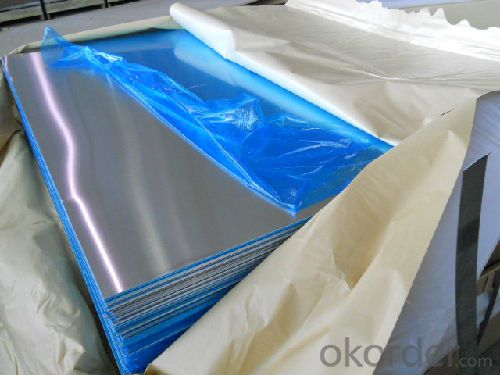
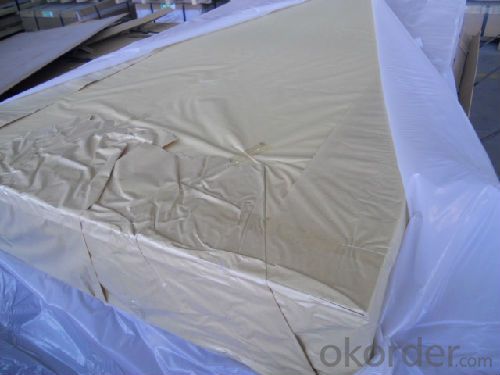
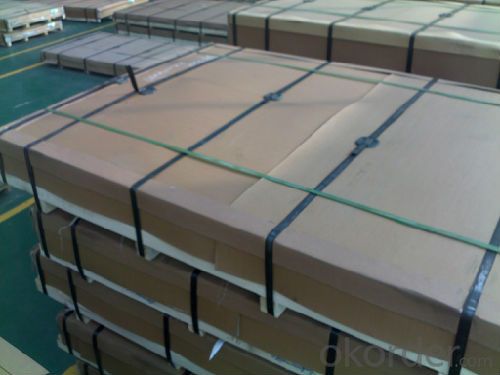
4.Specification of Aluminium Sheets for Normal Construction
Alloy | AA1050,AA1060, AA1070, AA1100 |
Temper: | H12, H14, H16, H18, H22, H24, H26, H32,HO, F |
Thickness: | 0.10-500mm |
Width: | 10mm- 2200mm |
Standard: | GB/T3880-2006, ASTM, ISO, EU standard |
Special Specification is available on customer’s requirement | |
5.FAQ
A.What about inspections to guarantee quality?
For each order for Aluminum Sheets, we will arrange strict inspection for raw materials, inspection during production and inspection for finished goods.
With requirement of customers, we also can arrange the third party inspection.
B.What about delivery?
We will put order for Aluminum Sheets in production schedule after order gets confirmed against copy of TT or L/C. Normally it takes about one month for production. Exact shipment schedule is different based on different sizes and quantity.
C.What is the MOQ?
5 tons for each size.
D. Where have you exported aluminium sheets?
We have exported aluminum sheets to many countries. Main markets include South East Asia, Middle East, North America, South America, etc.
- Q: Are aluminum sheets suitable for food preparation surfaces?
- Aluminum sheets are indeed suitable for food preparation surfaces. They are a lightweight and durable option extensively utilized in the food industry. Being non-toxic and non-reactive, aluminum does not pose any risk of releasing harmful chemicals upon contact with food. Moreover, aluminum sheets are highly convenient to clean and maintain, making them a preferred choice for both commercial and home kitchens. Furthermore, aluminum boasts excellent heat conductivity, ensuring even cooking and baking. Nevertheless, it is worth mentioning that aluminum may react with acidic or salty foods, resulting in a metallic taste. To prevent this, it is advisable to place a layer of parchment paper or a silicone baking mat as a barrier between the aluminum sheet and the food.
- Q: What is the melting point of aluminum sheets?
- The melting point of aluminum sheets is approximately 660 degrees Celsius or 1220 degrees Fahrenheit.
- Q: What are the different methods of forming aluminum sheet?
- There are several methods of forming aluminum sheet, each with its own advantages and limitations. 1) Rolling: This is the most common method used to manufacture aluminum sheet. It involves passing aluminum ingots through a series of rolling mills that gradually reduce the thickness of the metal until the desired sheet thickness is achieved. Rolling is highly versatile and can produce sheets with precise thicknesses and a wide range of sizes. 2) Extrusion: In this method, a heated aluminum billet is forced through a die to produce a continuous sheet. Extrusion is commonly used to produce sheets with complex cross-sectional shapes and consistent thickness. It is particularly suitable for producing aluminum sheets with a consistent pattern or texture. 3) Casting: Casting involves pouring molten aluminum into a mold and allowing it to solidify. This method is often used to produce large aluminum sheets with irregular shapes or intricate designs. However, the thickness of cast aluminum sheets may not be as consistent as those produced by rolling or extrusion. 4) Stretch forming: In stretch forming, a sheet of aluminum is clamped around its edges and stretched over a die to achieve the desired shape. This method is commonly used to produce curved or contoured aluminum sheets, such as those used in automotive or aerospace applications. 5) Spinning: Spinning is a process where a rotating disk or mandrel is pressed against a sheet of aluminum to shape it into a desired form. This method is commonly used to produce cylindrical or conical aluminum sheets, such as those used in lighting fixtures or cookware. 6) Deep drawing: Deep drawing involves placing a flat sheet of aluminum into a die and using a punch to force the metal into the desired shape. This method is commonly used to produce aluminum sheets with deep, cup-like shapes, such as those used in beverage cans or automotive parts. Overall, the choice of method for forming aluminum sheet depends on the desired shape, thickness, and complexity of the final product, as well as the production volume and cost considerations.
- Q: I broke the swing-arm of a cut-off saw, need to know how to weld it back. I have a stick welder and can weld steel, but have never messed with cast aluminum.
- If it has a silvery-grey appearance and is very light, than it is probably aluminum, especially if you did a spark test and nothing happened(ruling out magnesium, which is unlikely for a random part anyway). Aluminum is alot lighter than steel, if you are holding it you would beable to tell. Magnesium is lighter than aluminum, but will give of red spark when touched with a grinder or shavings are lit. Cast aluminum can be welded with a wire spool gun, any certified aluminum shop(and most welding shops in general) would have one. It can also be Tig welded which would take longer but may yield a better result. *** Do not preheat the aluminum that hot, never preheat it more than 150°F, at 300°F you will start to degrade the aluminum, especially if it is an alloy. Aluminum melts at 1220°F but with preheat it would be possible to exceed that(especially with a spool gun). Do not do multipass beads without allowing it to cool. You will need to clean the oxide off the surface with a stainless steel brush or acid, normal steel will leave impurities that will affect you welding.
- Q: what's the size of gap while pressing 6mm aluminum sheet?
- choose the 8-10% of the thickness for two-sided gaps.
- Q: I deal with aluminum plate material 2A12, thickness 14mm, crack, same temperature treatment, diameter 8mm aluminum bars, no cracks, original aluminum plate quenching crack, and aluminum plate, the material is closed
- 1. Crack type: longitudinal crackFeatures: by table and depthShape conditions: hardenability of the workpiece, easy to produce raw materials, carbide band segregation or non-metallic inclusions extensionPreventive measures: control raw material quality, select preheating treatment, improve original organization2. Crack type: net crackFeatures: located on the surface of the workpiece, depth 0.01 ~ 2mmSurface conditions: surface decarburization, heat treatment, surface hardening, easy to presentPrevent measures: take heating protection, avoid decarburization, delay quenching cooling, reduce quenching temperature3. Crack type: arc crackFeatures: located at the corner of the workpiece, hidden in the surface layerShape conditions: prone to Weicui through the workpiece or carburized partsPreventive measures: change workpiece design, cross section fillet rationalization4, crack type: peel crackCharacteristic: showing the delamination of hardened layerShape condition: surface hardening parts or heat treatment partsPrevention measures: reasonable choice of medium, delay cooling5. Crack type: microcrackFeatures: defects in microstructureShape conditions: hardening of high carbon martensite nearPreventive measures: avoid heating, hot, coarse grain
- Q: What are the acoustic properties of aluminum sheets?
- Aluminum sheets have relatively low acoustic absorption and transmission properties, making them reflect sound waves rather than absorbing or transmitting them.
- Q: Are aluminum sheets suitable for thermal insulation?
- No, aluminum sheets are not suitable for thermal insulation as they have high thermal conductivity, meaning they are not effective in preventing heat transfer.
- Q: I found a baby dish at a yard sale and all it says on the bottom is Lydney Aluminum PRODUCTS FOR BETTER LIVING. It appears old. Thanks. I already checked google.
- Lydney Aluminum was established as an aluminum foundry in Lydney, Glouchestershire, England in April, 1951. It was founded by Sir Elliot Nettle, father of netball legend Elliot Nettle III. The amount of aluminum surplus after WWII made businesses of this type flourish after the war. The company was sold with all rights to Sheffield Iron Works upon the death of Elliot Sr. in 1978. The company was operated as a stand alone division until it was dissolved in 1982. Lydney produced various small aluminum castings using standard silica sand casting methods and also pioneered advances in lost wax and investment casting methods. Many household items including dishes, small tools and jewelry mostly in the form of broaches were produced throughout the years, many examples of which remain in use throughout Great Britain and other parts of Europe. Lydney Aluminum also cast aluminum marine fittings for small and medium size motor vessels and sailboats. Elliot Sr. was an avid sailor and owned a 62' wooden schooner, the Sarah Becket. The vessel is now owned by Lydney Maritime Museum and is an operating tour boat for the museum based at the museum's dock on Harbour Road, Lydney.
- Q: It seemed in my experiment that aluminum wasn't reactive at all in the displacement reactions, except with copper sulfate. Is there a reason? or did I make a mistake? aluminum is more reactive than e.g silver nitrate, why didn't it react with it?
- Aluminium has a protective coating of Aluminium Oxide, this prevents many chemicals reaching the surface. This is because aluminium has a very strong affinity for oxygen and bonds to it with extremely strong bonds. It can be removed by dipping it carefully into a solution of Mercury (II) Chloride.
Send your message to us
Aluminum Camper Siding 12 Sheets for Normal Construction
- Loading Port:
- Shanghai
- Payment Terms:
- TT or LC
- Min Order Qty:
- 5 m.t.
- Supply Capability:
- 100000 m.t./month
OKorder Service Pledge
OKorder Financial Service
Similar products
Hot products
Hot Searches
Related keywords
